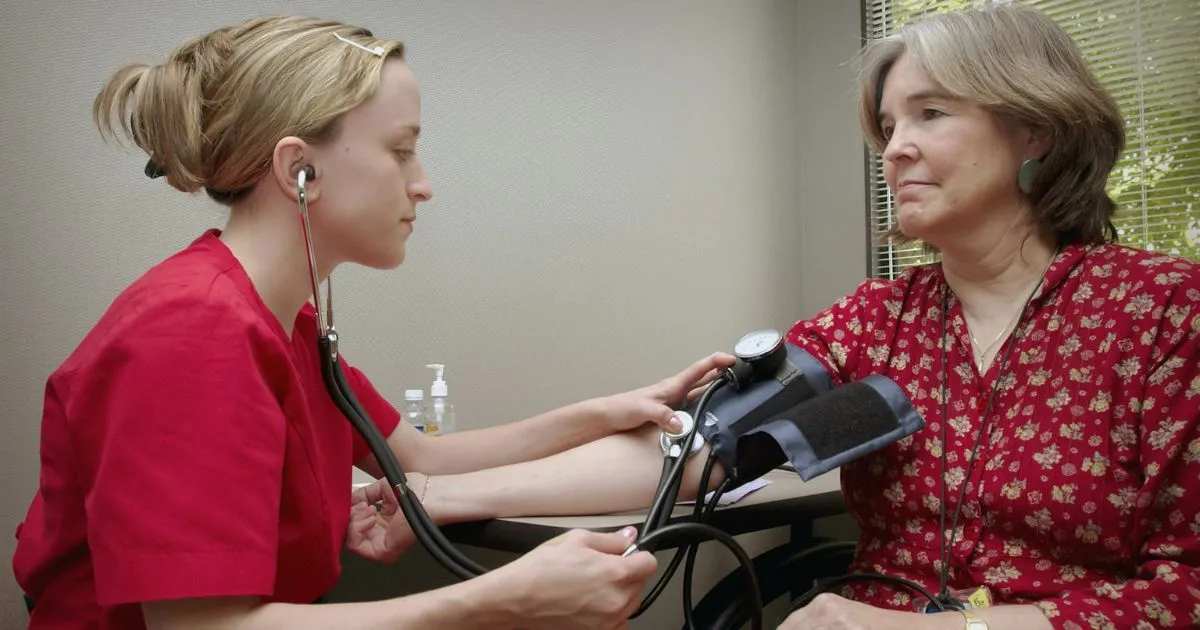Can Flu Cause High Blood Pressure? Understanding the Hidden Link Between Infection and Heart Health
Have you ever found yourself curled up in bed, shivering under a pile of blankets with the flu, and suddenly, you notice your blood pressure monitor reading higher than normal? You’re not alone. Many people wonder if there’s a connection between catching the flu and spikes in blood pressure. Can flu cause high blood pressure? It’s a valid concern, especially if you’re managing hypertension or dealing with heart health issues. Understanding how your body responds to illness is a critical step toward taking care of your cardiovascular well-being during flu season.
Table of Contents
Let’s dive into how the flu interacts with your body, especially your cardiovascular system, and what you can do to protect yourself.
What Is High Blood Pressure and Why It Matters?
Understanding Blood Pressure Basics
Blood pressure refers to the pressure exerted by circulating blood against the walls of your arteries. It’s recorded as two distinct numbers:
- Systolic pressure (top number): The pressure when your heart beats
- Diastolic pressure (bottom number): The pressure when your heart rests between beats
If your reading consistently hits 130/80 mmHg or higher, you’re considered hypertensive. Left unchecked, high blood pressure can lead to serious health issues, including stroke, heart attack, kidney disease, and cognitive decline.
The Body’s Response to Illness
When you’re sick, your body springs into defense mode. It produces inflammatory compounds, like cytokines, and stress hormones, such as adrenaline and cortisol. These changes help fight off infection but can also elevate your blood pressure temporarily. Combine that with dehydration, fever, and poor sleep, and it’s easy to see how flu can affect your cardiovascular system.
Can the Flu Cause High Blood Pressure? The Medical Perspective
Inflammatory Response and Cardiovascular Strain
When your immune system fights the flu, it creates widespread inflammation. This inflammatory cascade can cause your blood vessels to constrict, raising your blood pressure. Add to this the increased workload on your heart from fever and congestion, and you have a recipe for temporary hypertension.
- Inflammation narrows blood vessels
- Fever speeds up your heart rate
- Dehydration reduces blood volume, pushing your heart to work harder
Studies Linking Influenza and Hypertension
Emerging research highlights the connection between infections and cardiovascular stress. One study published in the Journal of the American Heart Association found that the risk of heart attack significantly increased in the week following a flu diagnosis. Other health organizations emphasize how influenza can exacerbate existing heart conditions.
Who’s Most at Risk of Flu-Induced High Blood Pressure?
Vulnerable Populations
Not everyone experiences a blood pressure spike during the flu, but certain groups are more vulnerable:
- People with existing hypertension or heart disease
- Older adults (65+)
- Those with diabetes or obesity
- Pregnant individuals
Flu Complications That Can Trigger Hypertension
Your body doesn’t just battle the flu virus—it also handles the side effects of treatment and secondary infections.
- Pneumonia can strain your lungs and heart
- Over-the-counter medications like decongestants (pseudoephedrine) raise blood pressure
- NSAIDs (ibuprofen, naproxen) may interfere with hypertension medications
Symptoms to Watch For: When Flu Affects Your Heart and Blood Pressure
Warning Signs of Hypertensive Response

If you have the flu and start noticing any of the following, it’s time to check your blood pressure:
- Persistent headaches
- Dizziness or lightheadedness
- Blurred vision
- Chest discomfort
- Shortness of breath
- Irregular heartbeat
When to Seek Emergency Care
If your blood pressure reads 180/120 mmHg or higher, or you experience any of these symptoms, call emergency services immediately:
- Sudden numbness or weakness
- Difficulty speaking or understanding
- Chest pain lasting more than a few minutes
- Sudden confusion or loss of coordination
Managing Flu and High Blood Pressure Together
Safe At-Home Remedies
When you have the flu and high blood pressure, you need to manage both carefully:
- Stay hydrated: Water helps maintain blood volume and regulates temperature.
- Rest fully: Your heart needs downtime to recover.
- Avoid stimulant medications: Many cold and flu meds can spike your blood pressure.
Doctor-Recommended Strategies
- Keep taking your prescribed blood pressure medications unless advised otherwise.
- Monitor your BP at least twice a day during illness.
- Get your annual flu vaccine, especially if you have cardiovascular concerns.
Preventive Measures for At-Risk Individuals
Year-Round Heart Health

- Follow a heart-healthy diet (low sodium, high potassium)
- Exercise moderately for 30 minutes a day, 5 days a week
- Limit alcohol and caffeine intake
- Quit smoking and avoid secondhand smoke
Seasonal Flu Protection
- Flu vaccine every year, ideally before flu season peaks
- Practice proper hand hygiene
- Avoid crowded places when outbreaks are common
- Wear a mask in high-risk settings
FAQs: Can Flu Cause High Blood Pressure?
Can flu raise your blood pressure temporarily?
Yes, it can. The body’s immune response, along with fever, dehydration, and stress, can all contribute to short-term elevations in blood pressure.
Which flu medications should people with high blood pressure avoid?
Avoid medications that contain pseudoephedrine or phenylephrine, as they constrict blood vessels and increase pressure. NSAIDs like ibuprofen can also interfere with BP control.
Is it dangerous to have the flu if you already have hypertension?
Yes. People with high blood pressure face a higher risk of complications from the flu, including stroke, heart attack, and hospitalization.
Should hypertensive people get the flu vaccine?
Absolutely. The flu shot reduces your chances of infection and lowers your risk of experiencing flu-related cardiovascular complications.
Conclusion: Stay Informed and Proactive
So, can the flu cause high blood pressure? The answer is yes—especially if you’re already managing hypertension or are in a high-risk group. But you’re not powerless. By staying hydrated, managing stress, choosing safe medications, and monitoring your vitals, you can weather flu season without putting your heart at risk.
Take preventive action now. Get vaccinated, stock up on heart-safe flu remedies, and stay connected with your healthcare provider.
Ready to take charge of your heart health this flu season?
Subscribe to our newsletter for the latest heart-smart wellness tips and flu protection strategies.
Disclaimer: This article is for informational purposes only. It is not a substitute for professional medical advice, diagnosis, or treatment. Always consult your healthcare provider before making any health-related decisions.

